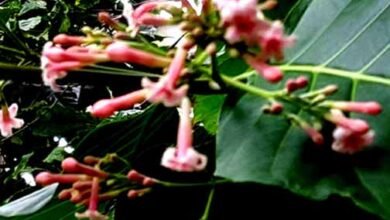
ठुमरियों की रानी….
ठुमरी गायिका शोभा गुर्टू का जन्म 08 फ़रवरी, 1925 को कर्नाटक के बेलगाँव ज़िले में हुआ था. उनका मूल नाम ‘भानुमति शिरोडकर’ था. उनकी माताजी मेनेकाबाई शिरोडकर स्वयं भी एक नृत्यांगना थीं तथा जयपुर-अतरौली घराने के उस्ताद अल्लादिया ख़ाँ से गायकी सीखती थीं.शोभा गुर्टू को शास्त्रीय संगीत सीखने की प्रेरणा अपनी माँ से ही मिली थी.
उन्होंने संगीत की प्राथमिक शिक्षा उस्ताद अल्लादिया ख़ाँ के सुपुत्र उस्ताद भुर्जी ख़ाँ साहब से प्राप्त की. इसके बाद उस्ताद अल्लादिया ख़ाँ के भतीजे उस्ताद नत्थन ख़ाँ से मिली तालीम ने उनके सुरों में जयपुर-अतरौली घराने की नींव को सुदृढ़ किया. किंतु उनकी गायकी को एक नयी दिशा और पहचान मिली उस्ताद घाममन ख़ाँ की छत्रछाया में, जो उनकी माँ को ठुमरी और दादरा व अन्य शास्त्रीय शैलियाँ सिखाने मुंबई में उनके परिवार के साथ रहने आये थे.
शोभा गुर्टू एक ऐसी शास्त्रीय शिल्पी थीं, जिन्होंने गायन की ठुमरी शैली को विश्व भर में ख्याति दिलाई. इन्हें ‘ठुमरियों की रानी’ भी कहा जाता है.उन्होंने ठुमरी के अतिरिक्त कजरी, होरी और दादरा आदि उप-शास्त्रीय शैलियों के अस्तित्व को भी बचाने में महत्त्वपूर्ण भूमिका निभाई थी. कहा जाता है कि,वे न केवल अपने गले की आवाज़ से बल्कि अपनी आँखों से भी गाती थीं.एक गीत से दूसरे में जैसे किसी कविता के चरित्रों की भांति वे भाव बदलती थीं, चाहे वह रयात्मक हो या प्रेमी द्वारा ठुकराया हुआ हो अथवा नख़रेबाज़ या इश्कज़ हो.
शोभा गुर्टू ने कई हिन्दी और मराठी फ़िल्मों में भी गीत गाए. वर्ष 1972 में आई कमल अमरोही की फ़िल्म ‘पाक़ीज़ा’ में उन्हें पहली बार पार्श्वगायन का मौका मिला था. इसमें उन्होंने एक भोपाली ‘बंधन बांधो’ गाया था. इसके बाद वर्ष 1973 में फ़िल्म ‘फागुन’ में ‘मोरे सैय्याँ बेदर्दी बन गए कोई जाओ मनाओ’ गाया. फिर वर्ष 1978 में असित सेन द्वारा निर्देशित फ़िल्म ‘मैं तुलसी तेरे आँगन की’ में शोभा जी ने एक ठुमरी ‘सैय्याँ रूठ गए मैं मनाऊँ कैसे’ गाया, जो कि बहुत प्रसिद्ध हुई.
शोभा गुर्टू को कई पुरस्कारों से भी सम्मानित किया गया.फ़िल्म ‘मैं तुलसी तेरे आँगन की’ की ठुमरी के लिए उन्हें “फ़िल्म फ़ेयर पुरस्कार” के लिए नामांकित किया गया. वर्ष 1978 में ‘संगीत नाटक अकादमी पुरस्कार’ मिला. उसके बाद वर्ष 2002 में ‘पद्मभूषण सम्मान से सम्मानित किया गया.
============= ============= ============
Thumri singer Shobha Gurtu was born on February 08, 1925, in the Belagavi district of Karnataka. Her original name was ‘Bhanumati Shirodkar’. Her mother Menekabai Shirodkar was herself a dancer and used to learn singing from Ustad Alladiya Khan of the Jaipur-Atrauli Gharana. Shobha Gurtu was inspired to learn classical music from her mother.
He received his primary education in music from Ustad Bhurji Khan, son of Ustad Alladiya Khan. After this, the training received from Ustad Nathan Khan, nephew of Ustad Alladiya Khan, strengthened the foundation of the Jaipur-Atrauli Gharana in his music. But his singing got a new direction and recognition under the tutelage of Ustad Ghamman Khan, who came to stay with his family in Mumbai to teach his mother Thumri and Dadra and other classical styles.
Shobha Gurtu was a classical artist, who made the thumri style of singing famous all over the world. She is also known as the ‘Queen of Thumris’. Apart from Thumri, she also played an important role in saving the existence of sub-classical styles like Kajri, Hori, and Dadra. She used to sing with her eyes too. Like the characters in the poem, she used to change her mood from one song to another, be it lyrical or rejected by her lover, flirtatious or flirtatious.
Shobha Gurtu also sang in many Hindi and Marathi films. In the year 1972, he got the opportunity to playback singing for the first time in Kamal Amro hi’s film ‘Pakeezah’. In this, he sang a Bhopali song ‘Bandhan Bandho’. After this, in the year 1973, he sang ‘More Saiyyan Bedardi Ban Gaye Koi Jao Manao’ in the film ‘Fagun’. Then in the year 1978, in the film ‘Main Tulsi Tere Aangan Ki’ directed by Asit Sen, Shobha ji sang a thumri ‘Saiyan Rooth Gaye Main Manaoon Kaise’, which became very famous.
Shobha Gurtu was also honored with many awards. She was nominated for “Filmfare Award” for the thumri of the film ‘Main Tulsi Tere Aangan Ki’. Received the ‘Sangeet Natak Akademi Award’ in the year 1978. After that, in the year 2002, he was honored with ‘Padma Bhushan’.





